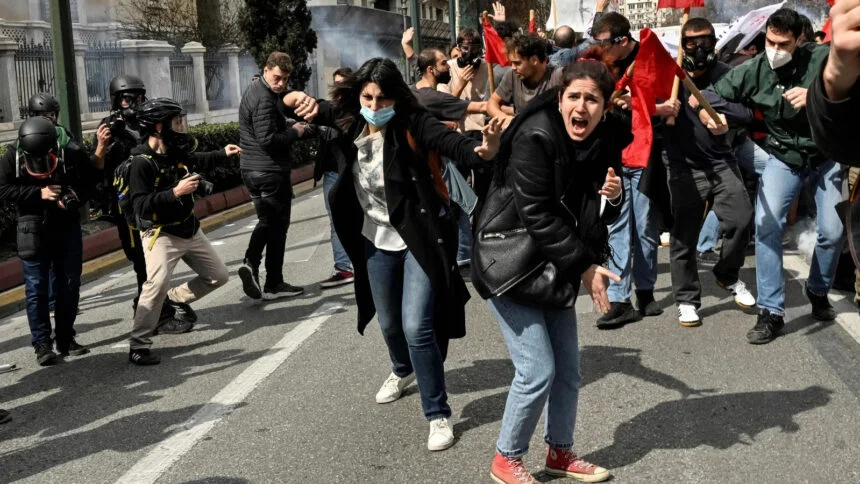On the edges of a demonstration by thousands of students and railroad workers against Greece’s deadliest train catastrophe in recent memory, there have been confrontations between police and a group of protesters outside the Greek parliament in Athens.
On Sunday, a tiny number of demonstrators lit garbage cans on fire and threw gasoline bombs at the police.
Authorities reported that 12,000 people had gathered beside the wide esplanade in front of the parliament to demand answers for the head-on collision that occurred on Tuesday in the capital city of Larissa and has since provoked a great deal of outrage.
The deadliest railroad accident to hit the nation in years occurred on Tuesday evening in Tempi, close to the city of Larissa, when a passenger train carrying more than 350 passengers crashed with a freight train.
Rage over the safety requirements on the Greek railway network has been raised in response to the tragedy. Police in Athens used tear gas on protesters gathered outside the parliament during the most recent demonstrations, which took place on Sunday.
In response, Greek Prime Minister Kyriakos Mitsotakis stated “we cannot, will not, and must not hide behind the human error,” following the tragedy, which left 57 people dead.
After three days of protests across the nation, 10,000 students, railroad workers, and organisations connected to left-wing political parties gathered in Athens’ Syntagma Square to show support for the victims and call for higher safety regulations on the rail network.
Protesters yelled, “That crime won’t be forgotten,” as they let free black balloons into the sky. There was a sign that said, “Their policies cost human lives.”
University students returning from a long vacation weekend filled the train from Athens to Thessaloniki in the north. The catastrophe has brought a lot of resentment and brought safety standards into sharp light.
Greek authorities released dispatch records proving that one of the affected train drivers had been given instructions to disregard a red signal on Thursday following the arrest of a train station manager in Larissa in connection with the collision.
According to a 2022 study from the European Union Agency for Railways, Greece has a subpar track record for the safety of rail passengers compared to other European countries, registering the highest rate of rail fatalities per million train kilometres from 2018 to 2020 among 28 countries on the continent.












